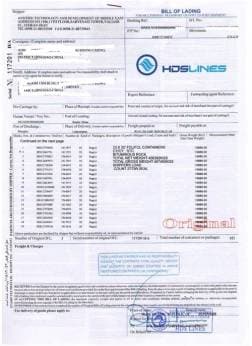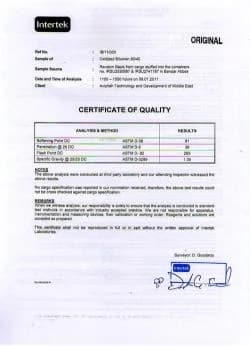Bitumen C170: A Reliable Binder for Stronger, Longer-Lasting Roads
Understanding Bitumen C170
Among paving grade bitumens, C170 stands out as the workhorse binder that delivers consistent quality in asphalt production and road surfacing. Classified under the Australian Standard AS 2008, Bitumen C170 is defined by its viscosity range at 60°C, placing it in the medium category. This balance between stiffness and flexibility makes it highly dependable for everyday roadworks and general infrastructure projects.
Unlike higher grades such as C320 or C600 that are reserved for heavy-duty applications, C170 is versatile enough for highways, local roads, airports, and even industrial paving. For contractors, distributors, and agencies, it is the grade that ensures performance without unnecessary cost escalation.
Why Bitumen C170 Matters for Your Projects
Predictable Performance
C170 offers steady viscosity across a wide temperature range, which translates into better mixing, laying, and compaction during asphalt production.
Durability with Flexibility
It is stiff enough to handle moderate traffic loads yet flexible enough to resist cracking under thermal stress.
Easy to Work With
C170’s handling temperatures are achievable with standard asphalt plant equipment, reducing operational complexity.
Compatible with Additives
When projects demand enhanced properties, C170 serves as a reliable base for polymer-modified or crumb rubber modified binders.
Recognized Worldwide
Although specified under Australian standards, Bitumen C170 is widely accepted in global trade and is used across Asia, the Middle East, and Africa.
Core Applications of Bitumen C170
Hot Mix Asphalt Production
As the standard binder for dense-graded and open-graded asphalt mixes, C170 ensures long-term pavement stability and skid resistance.
Sprayed Sealing Works
When used in sprayed seal projects, C170 provides excellent aggregate retention and weather resistance, extending the lifespan of roads.
Road Maintenance
Because of its balanced properties, it is often chosen for resealing and overlay projects on existing pavements.
Industrial Uses
C170 also finds applications in waterproofing membranes, protective coatings, and industrial processes that require a medium-viscosity binder.
Value in the B2B Market
For importers, traders, and contractors, Bitumen C170 offers more than just technical reliability. It provides business certainty:
Consistent demand from road agencies and contractors
Easy integration into asphalt plant operations
Export-friendly packaging options such as bulk shipments, steel drums, and bitutainers
Certificates of Analysis for every batch to meet international compliance
This combination of demand stability and quality assurance makes Bitumen C170 a staple in the global bitumen supply chain.
Storage and Handling Advice
Store in bulk tanks or sealed drums in a dry, covered area
Recommended pumping temperature: 150–170°C
Avoid prolonged overheating, as it may alter viscosity and durability
Follow standard PPE requirements during handling for safety
Frequently Asked Questions (FAQ)
Q1: What does the number 170 mean in Bitumen C170?
A: It represents the viscosity range at 60°C, measured in Pa·s. C170 is a medium viscosity paving binder.
Q2: Why choose C170 instead of C320 or C600?
A: C170 is more flexible and cost-effective for general road projects, while higher grades are better for heavy-duty or high-temperature environments.
Q3: Is Bitumen C170 suitable for hot climates?
A: Yes, but in extremely hot regions or heavy-traffic roads, a stiffer grade like C320 may be recommended.
Q4: How is C170 typically supplied for export?
A: In bulk tankers, 200 kg steel drums, or bitutainers, depending on buyer requirements and shipment size.
Q5: Is Bitumen C170 environmentally safe?
A: Bitumen itself is non-toxic and non-carcinogenic, but it should be handled properly to prevent environmental contamination.
Table of Contents
Technical Specifications
| Property | Standard Value |
|---|---|
| Viscosity @ 60°C | 160–200 Pa·s |
| Viscosity @ 135°C | 0.34–0.48 Pa·s |
| Penetration @ 25°C | 65–90 dmm |
| Softening Point (Ring & Ball) | 45–52 °C |
| Flash Point | Min 240 °C |
| Solubility in Trichloroethylene | Min 99.0% |
| Density @ 25°C | 1.01–1.05 g/cm³ |
| Loss on Heating (163°C, 5h) | Max 0.5% |
| Change in Penetration after Heating | Max 20% |


